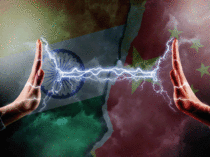
The large trade deficit of $48.6 billion (FY20) that India runs with the neighbouring country has already been a source of resentment, and the Modi government’s ambitious Atmanirbhar Bharat Campaign is targeted precisely at reducing dependence on these imports and producing more at home.
The border escalation has whipped up anti-China sentiment among Indian consumers, and is putting pressure on the government to review policies and put checks on Chinese trade and commerce.
The states of Maharashtra and Haryana have either put on hold or cancelled a few contract awards to Chinese firms. At the central government level, the word has gone out to the industry to prepare a list of non-essential imports from China, which can be substituted locally.
India’s interest in the Chinese market is not large: just 5.3 per cent of her total exports, at $16.6 billion (FY20), is shipped to China.
Analysts say any potential escalation between the two nations could increase operational/supply-chain risks in the current economic backdrop, even as the two economies struggle to recover from the pandemic.

“It would be difficult and expensive for Indian firms to immediately find alternative suppliers,” said Motilal Oswal Securities.
Take, for instance, the residential air-conditioner segment. Out of India’s total demand of 55 lakh units, around 25-30 lakh are imported from China. “None of the Indian players cater to export markets,” says JM Financial.
Should tariffs on these imported components go up, they may hit Voltas. Havells and Crompton Greaves may have lesser impact due to lower exposure to China. But the ultimate impact will be on consumers, as these companies would seek to pass on the extra cost, analysts said.
In chemicals, India is already the second largest producer globally in the dyes and dye intermediates segment, but the capacities are fragmented. In fluorine, India does not have the natural resources and companies cannot de-risk the supply chain. So, any intervention there may hit chemicals companies like Rallis, Dhanuka, Sumitomo India and Insecticide India.
In pharma, India is a global hub for generic drugs, but Chinese API manufacturers enjoy significant cost competitiveness over local drugmakers owing to scale benefits, lower utility costs and higher capacity utilisation. Except for integrated companies such as Cipla and Sun Pharma, other drugmakers have 60-70 per cent dependency on key APIs from China.
E-commerce company Info Edge could be impacted due to India-China hostilities, as its investee companies – Zomato and Policy Bazaar – have exposure to investments from China.
In the auto industry, 24 per cent of all the auto components being imported come from China. China holds a 24 per cent share in auto tyres and tubes imports. The recent tariff increase on Chinese tyres has, however, benefited domestic tyre makers.
The reaction of the stock markets in India and China to the recent border escalation has been somewhat muted, suggesting that investors expect a diplomatic solution to emerge.
“Both sides seem to be in favour of de-escalating,” said Rusmik Oza, Head of Fundamental Research at Kotak Securities. “They both are struggling economies,” he said.
Armies of the two nations came face-to-face last week and got engaged in deadly clashes for the first time in 45 years, leaving 20 soldiers dead on the India side and many more on the other side. That led to a quick build-up of troops on both sides of the border.
“For both countries, the bigger issue is to fight Covid-19 and revive their economies,” said Siddharth Khemka, Head, Retail Research at Motilal Oswal Securities. “But in China, a bigger agenda of nationalism is at play. The country is showing a lot of aggression not only towards India, but other regions. Hong Kong is an example. The good thing is that India has global support. Talks between the two nations are on, which is promising,” he said.
FPIs remain unfazed by the border tension, pumping in over Rs 20,000 crore worth of dollars into Indian stocks in June.
Umesh Mehta of Samco Securities said if the problem spirals, the market will get re-rated and act accordingly. As long as the matters stay in the hands of the Army, things will remain in control. But if there arises a need for using all the three services i.e. Army, Air Force and Navy, that would be a big problem,” he said.
Ajay Bodke of Prabhudas Lilladher advises investors to tread carefully, especially in the wake of the mammoth rebound from March lows.
“The market is betting on a swift revival of aggregate demand post unlocking of the economy, and hoping for no sharp spike in the second wave of the Covid-19 cases. Outsized stock price movements in small & micro-cap stocks without any commensurate improvement in underlying fundamentals should be a major concern, as any market correction will see speculative fervor in such stocks die quickly impacting retail investors,” he said.
Download The Economic Times News App to get Daily Market Updates & Live Business News.
Subscribe to The Economic Times Prime and read the Economic Times ePaper Online.and Sensex Today.
Top Trending Stocks: SBI Share Price, Axis Bank Share Price, HDFC Bank Share Price, Infosys Share Price, Wipro Share Price, NTPC Share Price
Read More News on
Download The Economic Times News App to get Daily Market Updates & Live Business News.
Subscribe to The Economic Times Prime and read the Economic Times ePaper Online.and Sensex Today.
Top Trending Stocks: SBI Share Price, Axis Bank Share Price, HDFC Bank Share Price, Infosys Share Price, Wipro Share Price, NTPC Share Price















 Get Unlimited Access to The Economic Times
Get Unlimited Access to The Economic Times
